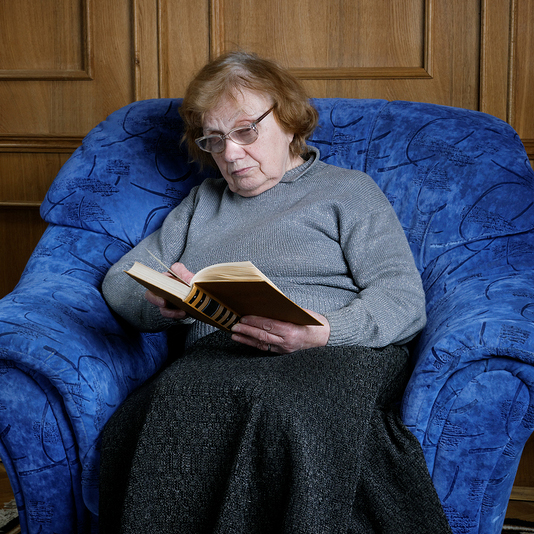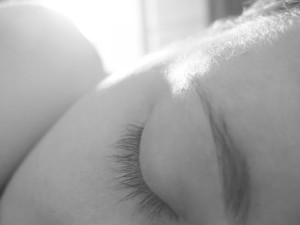Did you know that more than half of people over the age of 65 may have issues with sleep disturbance?

Insomnia can be related to a variety of things such as decreased activity during the day, the loss of a life partner, or stress and discomfort from various medical conditions. The consequences of insomnia can be severe and sometimes medical treatments used to rectify things can be expensive, inconvenient and have their own complications. We’re lucky that a simple, safe and inexpensive option is available to us all, meditation.
Do the following scenarios sound familiar? (If yes it may be time to consider sleep meditation)
Jean is in her 80’s and has trouble sleeping at night. She usually drifts off while reading but wakes in the early hours of the morning and finds it impossible to sleep from then on. Following this, she suffers from sleepiness during the day, resulting in napping, which then creates a vicious cycle in terms of getting a good night’s sleep the following night. She and her husband, Charles, live in a granny flat attached to her daughter’s house because they find it a little difficult to manage on their own nowadays.
Jean finds that using meditation and focusing on her breath when she experiences sleeplessness allows her to relax deeply. This, in turn, sets up a positive cycle where she relaxes so deeply that she easily drifts back into the soothing, peaceful embrace of sleep and awakens refreshed and alert the next morning. She finds that even though she may still nap a little during the day, the quality of her sleep has improved greatly.
Jean’s daughter and caregiver, Rhonda is divorced, works full time and cares for her own family of teenagers as well. She’s absolutely exhausted at the end of the day. Even though she’s incredibly tired, she finds it difficult to sleep at night because of thoughts whirring through her brain about what she needs to do the next day and worrying about her parents. She tosses and turns until she falls into a fitful sleep, waking at the smallest sound before falling back to sleep again.
Like Jean, Rhonda finds that when she consciously focuses on her breath and lets go of the things that distract her from that focus, she’s able to remain more present and mindful. As a result she can draw her attention back to her breath more easily when thoughts start to intrude, which has the benefit of inducing a deep state of relaxation. From there, Rhonda can easily slide into a restful, deep slumber during the night which enables her to be far more productive and less stressed the next day. 
By meditating on a regular basis, sleep patterns can be improved, accompanied by all of the benefits that come with a night spent comfortably in the land of Nod. The body’s capacity to restore itself is enhanced and immune function is strengthened. We feel more alert and ‘with it’ after a good night’s sleep because the body has depleted itself of adenosine, which is the substance responsible for making us feel sleepy. In addition our memories become sharper and our ability to focus is increased once we’ve had a night of restful, relaxing sleep.
Formal scientific studies of the benefits of meditation on sleep patterns support the positive examples presented in the scenarios above. A 6 week study of adults over the age of 55 found that meditation was at least as effective as other treatments aimed at improving sleep. In fact, it was found that the sleep scores of meditating participants improved much more than those who undertook sleep education as an alternative. The study, reported by David S Black and others in the Feb. 16 issue of the journal JAMA Internal Medicine, concluded that meditation was effective as a short term approach to improving sleeping patterns. While more research is needed into the long term effects, the results also showed no negative effects from participating in meditation with the aim of better quality sleep.
If you’re one of those who tosses and turns at night, lamenting the futility of counting sheep and staring at the ceiling trying to will your eyes to close, make a promise to yourself now to investigate sleep meditation. It’s far easier than you might think, there’s nothing to lose and all of the benefits of a great night’s sleep to gain.
My wish for you is that as a result of practicing sleep meditation, you obtain the absolute bliss of a wonderful night’s slumber. Sweet dreams!
Source: http://www.livescience.com/49828-mindfulness-meditation-sleep-older-adults.html

 Meditation is like any practice. It comes easy to some but not to everyone. Just like you would need to practice a sport in order to master it, meditation also needs to be practiced and perfected before it becomes second nature.
Meditation is like any practice. It comes easy to some but not to everyone. Just like you would need to practice a sport in order to master it, meditation also needs to be practiced and perfected before it becomes second nature.
 I would like to introduce my first relaxation mp3 to you.
I would like to introduce my first relaxation mp3 to you.